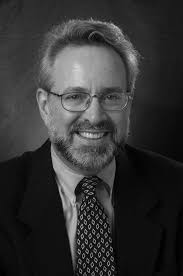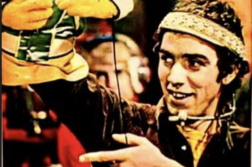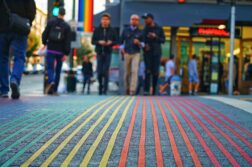
I hadn’t thought about the epistolary novel I wrote in 1995 until one afternoon, decades later, when, preparing for a move, I came across a cardboard box labelled “The Brothers Antonelli.” Inside, I found three spiral-bound copies of the novel along with a bundle of one-paragraph letters from various New York publishers, all politely expressing their disinterest.
The Brothers Antonelli, a roman a clef, consisted of letters between Vincent (the pseudonym for my twin brother Edwin in the novel) and Matt (the pseudonym for myself), sharing news about family and friends, comparing their experiences studying medicine in the mid-1970s, Vincent in Pennsylvania and Matt in West Virginia. Complaints about the rigors of medical school and observations about quirky classmates were frequent topics, but beneath these superficialities, the letters reveal that the brothers are grappling with the constraints of a childhood twinship bond that demanded strict uniformity of feeling and thought.
The letters refer to sexual experimentation during college—including the fact that Matt and Vincent both, individually, had sex with the same male friend, Michael. In their correspondence, Matt minimizes the significance of his trysts with Michael as the product of marijuana-stoked, opportunistic sexual release. But when Vincent reflects on his interactions with Michael, he doesn’t minimize the emotional content of their coupling. After a lifetime of sharing the same worldview, Vincent’s willingness to accept his homosexuality threatens Matt, who is troubled by his own same-sex feelings, preferring to keep them suppressed. By the novel’s end, Matt slowly overcomes his internal homophobia and begins to accept his gay identity, as I did in my own life.
No doubt, the unpublished manuscript seem dated by today’s standards. Detailed, multi-paged letters received in the mail have long since been replaced by social media communications and shorter, more immediate, text messages. And younger queer folk would likely react to Matt’s shame and profound anxiety about accepting his gay identity as a relic of an unenlightened past. But in 1973, when NORC, a social research organization at the University of Chicago, first asked questions about homosexuality in its General Social Survey, 76% of respondents indicated that sexual relations between two adults of the same sex was “always wrong.” That was the same year that the American Psychiatric Association finally came around to removing the diagnosis of “homosexuality” from its standardized list of mental disorders. That’s not to say that in our present era of out, non-binary celebrities, gay media pundits, and same-sex newlyweds crowding Instagram, accepting one’s gay identity is effortless. Hate crimes against sexual and gender minorities, anti-LGBTQ legislation, and increased rates of suicide among gay youth all attest to the stubborn persistence of stigma directed toward sexual and gender minorities.
Reflecting on my novel, I hadn’t considered that because of the AIDS epidemic, a substantial segment of gay readers who might be able to relate to my novel were no longer among the living, when the manuscript was finished in 1995. Not because AIDS wasn’t on my mind. In truth, a decade’s worth of reaction to the epidemic was behind my writing The Brothers Antonelli. It began with the illness and death of my brother’s partner Tommy, the loss of our dear college friend (the character Lenny in the novel), and my brother Edwin’s HIV diagnosis. Like so many gay men, I felt compelled to take action. Not fearless enough—or “out” about my sexuality in professional circles—to confront AIDS-related homophobia and demand action through activism and noisy protests, my initial assault against the virus was a quiet one. In the late 1980s, I wrote an academic text describing the design of effective AIDS prevention programs.
My urge to continue fighting the virus eventually led to a career change. In 1989, I left my position as a university-based pathologist and traveled to Atlanta to join the U.S. Centers for Disease Control and Prevention (CDC). During the seventeen years I spent at the CDC, there were several reorganizations and various changes in my job titles. But preventing the spread of HIV always remained a prominent responsibility of mine in all the positions I held during those years.
Edwin died four years after I joined the CDC, on November 10, 1992—just twenty days shy of his/our 41st birthday. During the last year of his life, I flew from Atlanta to Philadelphia every month to spend long weekends with him. By then, the virus’ effects were clearly visible and my twin bore more resemblance to the other wasted casualties of HIV than he did to me. Watching the man who had once directed an inpatient psychiatric unit, traveled to local jails to provide mental healthcare, and frequently, with genuine enthusiasm, opened his home to a diverse assemblage of family, neighbors, and friends, dwindle into a wobbly, semi-recluse—self-conscious of the changes in his physical appearance—aroused pity along with an occasional flash of guilt. Why was I the lucky one?
Finally, it happened. The visiting nurse warned my mother to be ready for Edwin’s death at any time. During that last autumn of his life, our mother took a leave of absence from her job in Florida to care for Edwin. I came to Philadelphia in response to my mother’s tearful call. The evening that Edwin died, I was driving to the airport to pick up my father. I can’t remember tears when I look back on that night, though I’m certain there were many. Instead, I recall the searchlight brightness of the full moon that followed me and my Dad from the airport back to Edwin’s home. And after we arrived and learned that he died, I remember being alone with Edwin in his bedroom, touching his cold body and telling him goodbye. Before I left the room, I cut a lock of his hair.
The days that followed were spent notifying friends and family members, planning the memorial service in Philadelphia and the funeral in western Pennsylvania. Edwin’s friends in Philadelphia, many of whom were gay, knew that he died of AIDS, but his illness wasn’t spoken of by those who gathered in our hometown for the funeral. Aunts, uncles, and several of our cousins knew that AIDS took Edwin, but the shame and stigma associated with the disease made the topic taboo. I don’t know how many of our relatives may have blamed Edwin’s death on his sexuality, but the attitude that persons who contract HIV from gay sex or drug use “got what they deserved” was neither unknown nor uncommon the year my twin was buried.
Edwin’s death propelled me to write a second, more personal book about AIDS in 1994: Gardening in Clay. This collection of short essays was very different from my previous work in that there were no charts, no numeric data, no reference citations. Instead, it was a first-person reckoning of the epidemic’s impact and the impending loss of my twinship status. But there was one aspect of Edwin’s illness that I didn’t expose in the book: that he caught the virus as a result of sex with another man—whether it was Tommy, his partner who died four years before Edwin, or someone else he dated before settling down with Tommy. I was silent on that point because I didn’t want to run the risk that some readers might either conflate the horror of AIDS with the acceptance of a gay identity or remember Edwin as a hapless victim of his sexual identity.
Like many a survivor who grieves a loved one, I needed to remember Edwin’s life rather than dwell on his death. I spent hours re-reading the letters he sent me during our medical school years. They were filled with tidbits about his life in Philadelphia, but it was the unyielding affirmation of his own gay identity, and his encouragement as I struggled with mine, that made me feel closest to him. Copied from among his letters to me are two of his many messages of support:
“I would like to live the kind of life that would shatter those parent-perpetuated stories of sad, tired fags. I can do it. We can do it; we are all so close…The world may change, but only if we begin acting as if we are just as wholesome as anybody else.”
“It’s time to not merely be comfortable with your sexuality but to be PROUD of what you are!”
Writing The Brothers Antonelli was my way of acknowledging and celebrating my brother’s accomplishment. Not as the well-respected community psychiatrist, but as the young man who refused to accept society’ corrosive stereotypes of what it meant to be gay. Neither disease nor defect, Edwin understood that it was simply another way to love and be loved. Coming to that awareness wasn’t easy and I didn’t want his fundamental achievement of self-acceptance to be forgotten or minimized because of the virus that killed him.
 Ronald Valdiserri is a physician who has spent most of his professional career working to prevent the spread of HIV and other sexually transmitted diseases, first at the U.S. Centers for Disease Control and Prevention (CDC) and later at the U.S. Department of Health and Human Services. In addition to his numerous medical and public health publications, he has authored a collection of personal essays about AIDS (Gardening in Clay)and published several poems. He lives in Georgia with his husband of many years, Ray.
Ronald Valdiserri is a physician who has spent most of his professional career working to prevent the spread of HIV and other sexually transmitted diseases, first at the U.S. Centers for Disease Control and Prevention (CDC) and later at the U.S. Department of Health and Human Services. In addition to his numerous medical and public health publications, he has authored a collection of personal essays about AIDS (Gardening in Clay)and published several poems. He lives in Georgia with his husband of many years, Ray.






